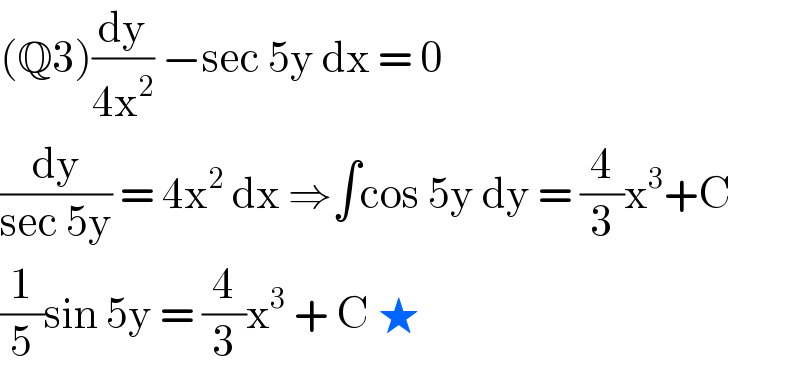
Question and Answers Forum
Question Number 101439 by mhmd last updated on 02/Jul/20

Commented by mhmd last updated on 02/Jul/20

Commented by bramlex last updated on 02/Jul/20

Commented by bemath last updated on 02/Jul/20
![(q4) 8x^2 = 32 , x = ± 2 The area = 2∫_0 ^2 (32−8x^2 ) dx = 2[(32x−(8/3)x^3 )]_0 ^2 = 2 (64−((64)/3)) = 128(1−(1/3)) = 128×(2/3) = ((256)/3) ♠](Q101442.png)
Commented by mhmd last updated on 02/Jul/20

Commented by bemath last updated on 04/Jul/20
![(q2) ∫_0 ^2 [( 4y+(1/4)sin 4y)]_0 ^( π) dx =∫_0 ^2 (4π) dx = [ 4πy ]_0 ^2 = 8π ★](Q101444.png)
Commented by mhmd last updated on 02/Jul/20

Commented by bobhans last updated on 02/Jul/20

Commented by mhmd last updated on 02/Jul/20

Commented by mhmd last updated on 02/Jul/20

Commented by mhmd last updated on 03/Jul/20

